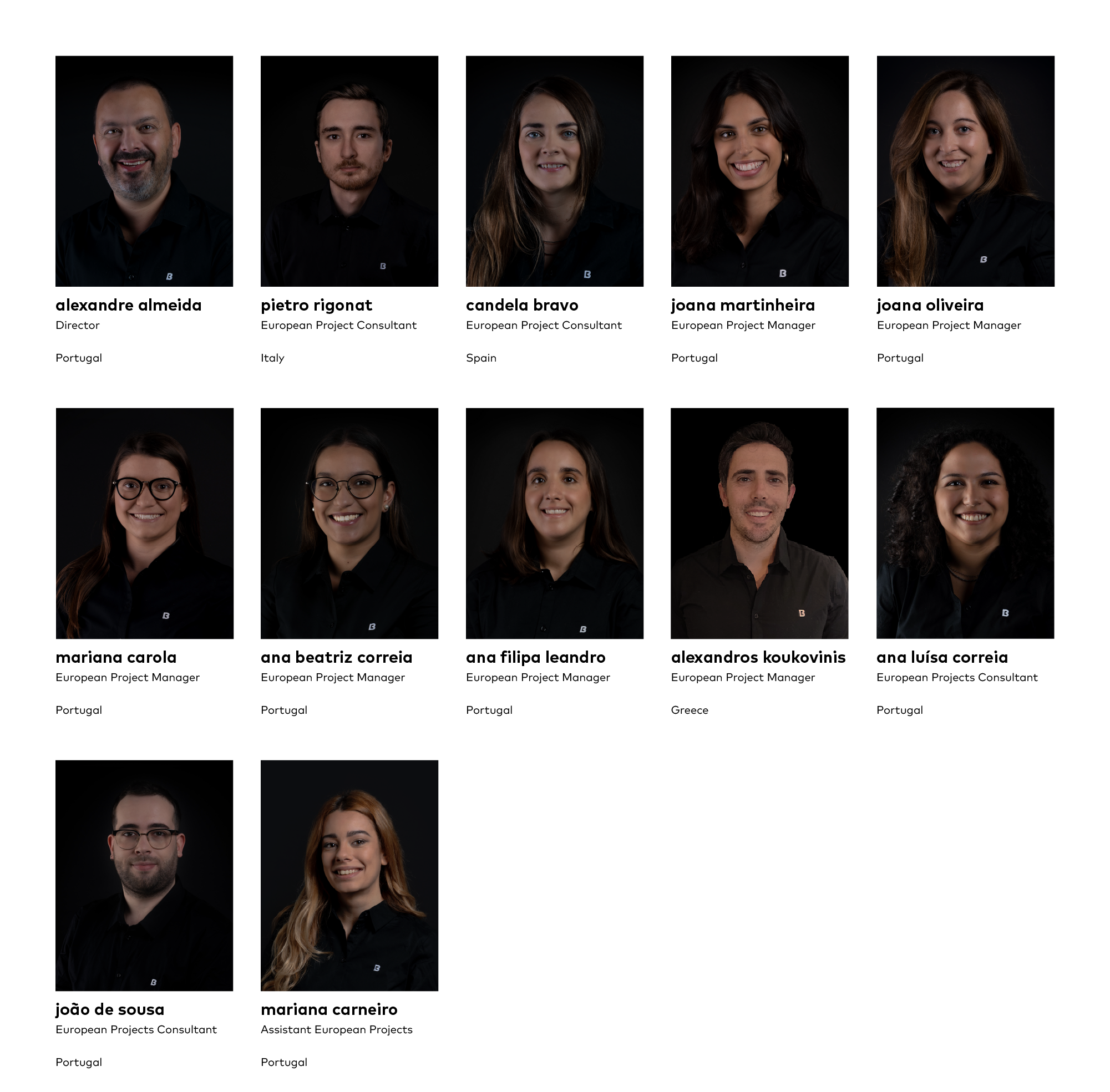Born in Oliveira de Azeméis, LOBA has always sought to expand its horizons beyond the limits of the city. Nowadays, there are no barriers to its growth, and the European Projects department is proof of that.
The European Projects department was established in 2010 and specializes in developing communication strategies and disseminating scientific results obtained through programs funded by the European Union, mainly from the Horizon Europe program (formerly Horizon 2020) and Erasmus+.
In recent years, this department has expanded beyond borders and currently has 13 employees from 4 different nationalities.

In Portugal, we immediately find three of these nationalities. Even though Portugal is not a very large country, it becomes difficult for the team to be physically together, as the 9 Portuguese colleagues are scattered between Porto, Oliveira de Azeméis, Aveiro, Viseu, and Coimbra.
In addition to these, the team includes a 'nuestra hermana' who surrendered to codfish and custard tarts and decided to join the team in Portugal. The Greek colleague came to show that Portugal also has great beaches and in his free time, he dedicates himself to fishing in the Algarve, where he currently lives. Oh, and he also shows us that most of the words we use in our daily lives come from Greek.
If you're counting, you'll notice that we're missing one element. Well, this element is Italian and is proof that all roads lead to Rome, even if it's through a video call.
Taking the example of this team, we understand that interculturality is beneficial for companies due to the different advantages it brings. One of the most obvious advantages is that the company becomes inclusive, promoting collaboration among people with different cultures.
Adapting to interculturally allows the company to more easily hire qualified personnel, as it is not limited to its geographical boundaries for recruitment. With qualified employees, companies improve the quality of the services offered, contributing to increased customer satisfaction.
In addition, multicultural teams are capable of adapting more easily to different realities and situations. However, working with such diverse teams is not a bed of roses and brings some challenges, such as language barriers, for example.
But at LOBA, these difficulties are seen as challenges and transformed into growth opportunities. No difference scares this team of 'lobaticos.'
Get to know the rest of our team.

